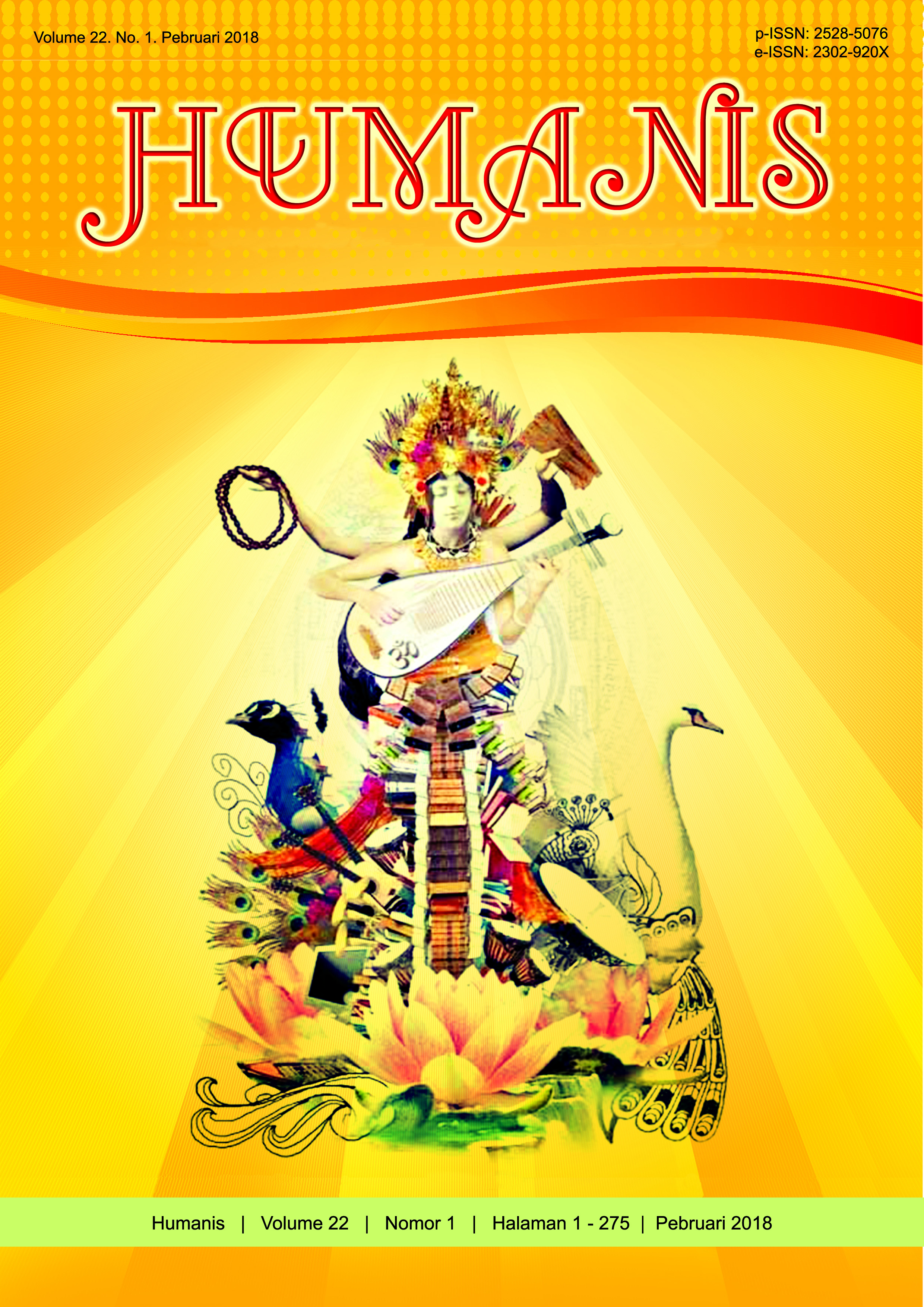Direct and Indirect Directive Illocutionary Acts in the Movie “Penguin of Madagascar”
Abstract
The study entitled “Direct and Indirect Directive Illocutionary Acts in the Movie Penguin of Madagascar” is aimed at identifying the direct and indirect directive types of illocutionary acts and explaining and analyzing the meaning of the utterances interpreted by the listeners. The data of this study were taken from the movie entitled Penguins of Madagascar, and it was chosen because of many utterances identified as directive of illocutionary acts. The observation and documentation methods were used in collecting the data since the data were obtained from the spoken source in the movie. The data were analyzed using the descriptive qualitative method since the purpose of this study is to analyze the social phenomena like speech acts. The first theory proposef by Bach and Harnish (1979: 47) is used to analyze the type of directive of illocutionary acts. The second theory, the context of situation proposed by Dell Hymes (1972, is used to analyze the meaning of directive of illocutionary acts that can be interpreted by the listeners. There are six types of directive of illocutionary act proposed by Bach and Harnish (1979). They are requestives, questions, requirements, permissives, prohibitives and advisories. In this study, several types of directive illocutionary were found in the movie, except the indirect question, and direct prohibitive. The way the listeners interpret the meaning depends on the context of situation.


















